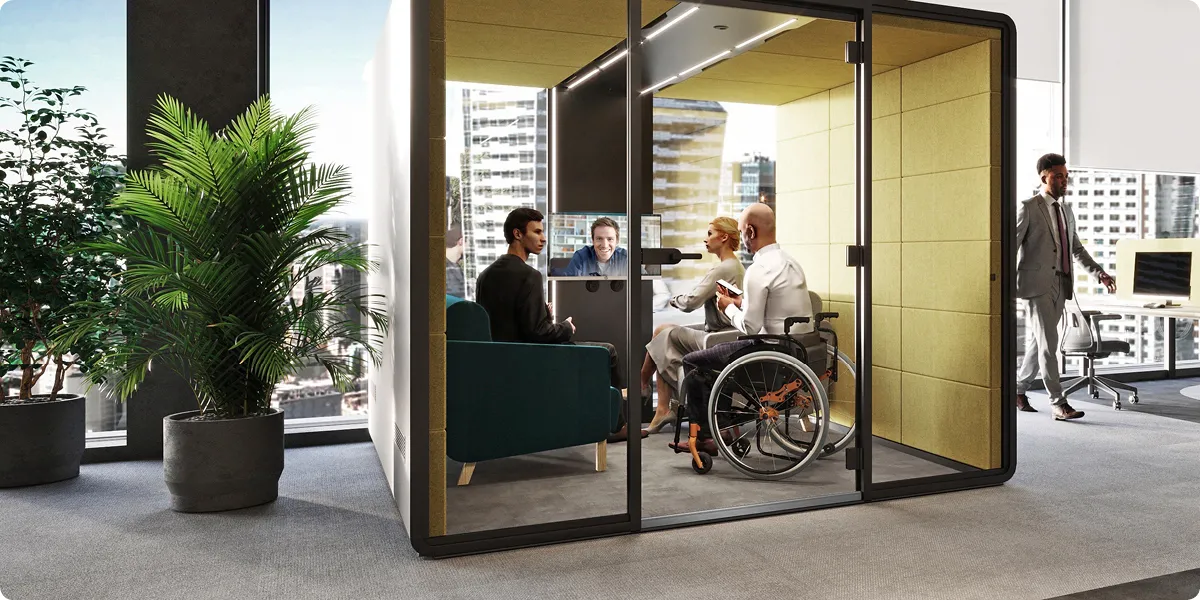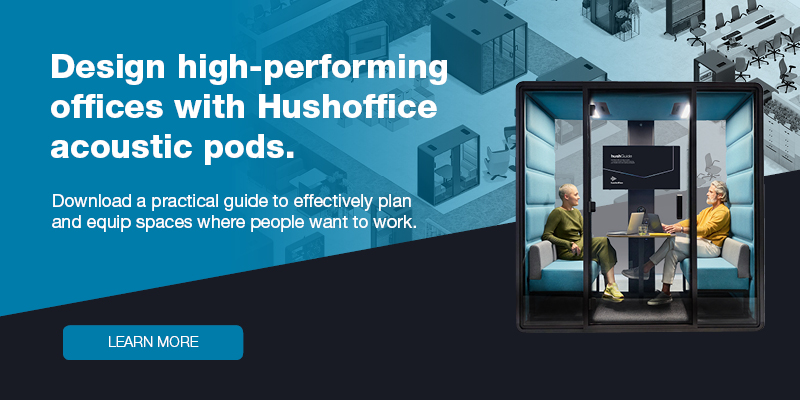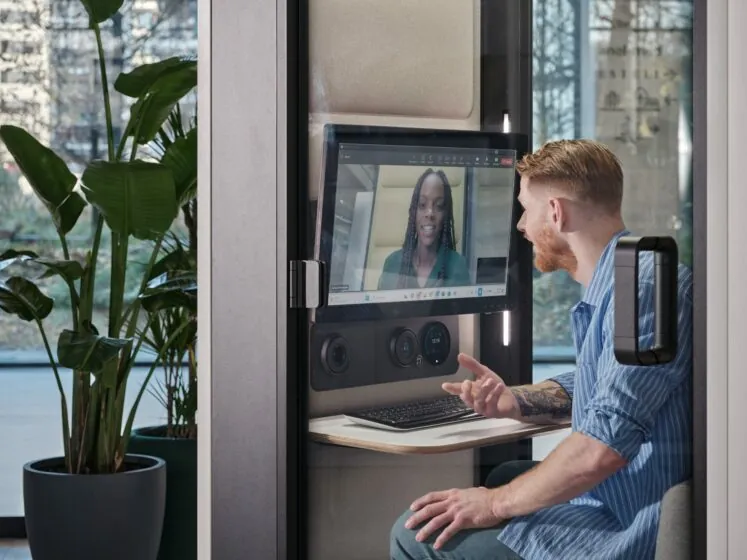What does Gen Z want out of the office?
- Posted on: 21 September 2022
- By: Hushoffice Team
Generation Z is the latest to enter the workforce. They’re set to surpass millennials as the most populous generation on earth. Who are they? What do they want? How can the office satisfy them, helping keep them around?
Summary: what does Gen Z want out of the office?
a layout that communicates transparency (over hierarchical structure)
private environments for private discussions
non-work “chill-out spaces” that support mental health
tech-free oases
hotspots for socialization
bang-up training spaces for skill development
Quick recap: who is Gen Z?
Also called “Zoomers,” Gen Z were born between roughly 1995 and 2012. They’re today’s youth. The most multicultural generation in U.S. history. Not just tech-savvy, but tech natives; merely infants when cellphones hit the scene, Gen Zers don’t actually know life before the Internet.
“Gen Zers” are assertive and adamant.
And rightfully so. They’ve been through the wringer. Global disasters. Economic downfalls. A pandemic. They’ve also been plugged into world affairs since childhood, making sense of complicated things from an early age.
What millennials prefer from their employers, Gen Zers expect.
Hybrid working flexibility, for instance — 71% of 18-24 year olds say they’ll seek other opportunities if forced to return to working in the office full-time at any point.

And though they expect flexibility, Gen Zs also value the physical office.
They missed it the most out of all generations. After all, many entered the workforce right as the pandemic hit, thus suffering long periods of isolation. Some didn’t meet peers IRL for months, simply going without camaraderie out the gates. Lack of raw attention from managers was no fun, either.

So what exactly does Gen Z want out of the office?
For one, a layout that communicates transparency (over hierarchical structure).
Picture open workspaces that foster the free flow of communication.
And reservable pods (see the Hushoffice collection) — first come, first serve — rather than private offices or cubicles. Rolling whiteboard space dividers for teammates to set up makeshift workspaces that are fluid, not fixed.
They want private environments for private discussions, too.
For this, 4-person pods like hushMeet work wonderfully well.

Gen Z is more comfortable with an intimate coaching style of management. Personalized guidance. They want to be encouraged, not micromanaged. They value consistent feedback highly, especially when working from home part-time
– says Mateusz Barczyk, Senior Brand Manager, Hushoffice.
Much of modern work is digital. For the Gen Zer, much of life at large is digital. Thus they crave human connection — face-to-face dialogue. It counterbalances WFH aloneness. It’s critical for those new to the job, seeking direction. In fact, 40% want daily interaction with their manager and would be concerned without it.

Surprisingly, many Gen Zers actually prefer traditional communication at work.
72% prefer in-person communication with their boss and colleagues. This is partly because insufficient feedback makes them worried and uncertain. Real-time conversation is reassuring. Many are fresh out of college, after all, and accustomed to regular attention from professors and peers.
Consider designing non-work “chill-out spaces” that support mental health.
Gen Z will only stick with employers who value their mental health
– says Mateusz Barczyk, Senior Brand Manager, Hushoffice.
They’re shown to be the most stressed out, anxious generation. So it comes as no surprise that 66% of them want companies to invest more resources into their mental health and wellness. Or that 82% want frequent mental health days. Other perks they seek include paid time off and periodic team outings.
Generally, Gen Zers aren’t workaholics like millennials.
They don’t identify as much with their work — life is more about moderation. This adds up, considering all the heaviness they’ve witnessed in their lives already. Gen Zs want to enjoy what the world has to offer.

They aren’t compelled to work themselves to the bone.
Or turned on by the glamor of hustle culture. And they’re very much in touch with how they feel and what they want; the average Gen Zer grew up taking to the Internet, articulating their two cents on the state of affairs.
Their “anti-work” movement says it all. The group won’t break their backs for a job.
They want a life well lived — in fact, twice as many Gen Z’s practice mindfulness or meditation than baby boomers. So to attract and retain them, the office must support their whole range of needs: social, emotional, financial.

Here’s a good read: 5 ways to prevent open office burnout.
Create a few tech-free oases in the office.
It’s true that Gen Zers don’t know life before the Internet. But this actually makes them acutely aware of the negative effects of tech, leading some to even ditch the smartphone (check out the anti-addiction or anti-distraction movement).
A few tech-free oases in the office can support conscious Gen Zs in becoming more digitally mindful and, ultimately, happier. A culture that encourages employees to realize a healthy relationship with tech can be a strong draw for prospective Gen Zers who demand work-life balance
– says Mateusz Barczyk, Senior Brand Manager, Hushoffice.

Offer hotspots for socialization. Gen Z is over social isolation.
Zoomers bore a particularly unpleasant brunt of the pandemic. Cut off from classmates and friends right while becoming young adults. Entering the workforce, starting out the first job on a digital front alone, without the energy of co-working in a physical space
– lends Mateusz Barczyk, Senior Brand Manager, Hushoffice.
Then there was the toil of working from home every day with no office variety. All at the age one needs socialization and stimulation to form a solid sense of self. Gen Z is simply not having any more loneliness. The office must bolster socialization.
Include bang-up training spaces for serious skill development.
While millennials are motivated firstly by purpose, Gen Z is motivated firstly by security. 65% think salary is important — 70% deemed it their top motivator. They’re a pragmatic crew. It makes sense since their lives have been, to some extent, one insecurity after the next.

For Gen Z, security is a matter of career advancement.
76% of Gen Z employees believe learning is the key to a successful career. They want opportunities to develop skills and advance in their careers. They’re focused on professional growth and on becoming an invaluable asset to their team. This explains why the office matters so much to them — they want to be present, proving their worth to teammates in person.
Though they’re willing to move along if they aren’t respected, Gen Zers prefer to stay with an employer long-term, since hopping from job to job is necessarily unstable
– says Mateusz Barczyk, Senior Brand Manager, Hushoffice.
So what can be said about Gen Z?
They’re a group that knows what they want, and they aren’t afraid to ask for it.Socialization. Mental health support. Skills training. A positive work atmosphere. Work-life balance. Provide it, and you’ll delight the youthful bunch that’s shaking up the landscape, taking over the workforce.
Summary: what does Gen Z want out of the office?
- a layout that communicates transparency (over hierarchical structure)
- private environments for private discussions
- non-work “chill-out spaces” that support mental health
- tech-free oases
- hotspots for socialization
- bang-up training spaces for skill development
Gen Z and the office – frequently asked questions
What do Generation Z want from work?
Generation Z, or “zoomers,” want to work for a company whose values align with their own. Since they suffer more mental health issues than previous generations, mental health support is also highly valued. They aren’t willing to break their back for a job; instead, Gen Z expects true work-life balance and will move along if it isn’t facilitated.
What kind of office does Gen Z want?
They want a layout that communicates transparency (over hierarchical structure). Private environments for private discussions, since they expect regular feedback from peers and managers. They want non-work chill-out spaces that support mental health — make them tech-free to foster digital mindfulness. Plenty of social hotspots are also demanded by the group since they’re through with social isolation.
What motivates Gen Z in the workplace?
While millennials are motivated more by purpose, Gen Z is motivated more by security. 65% think salary is important — 70% deemed it their top motivator.






